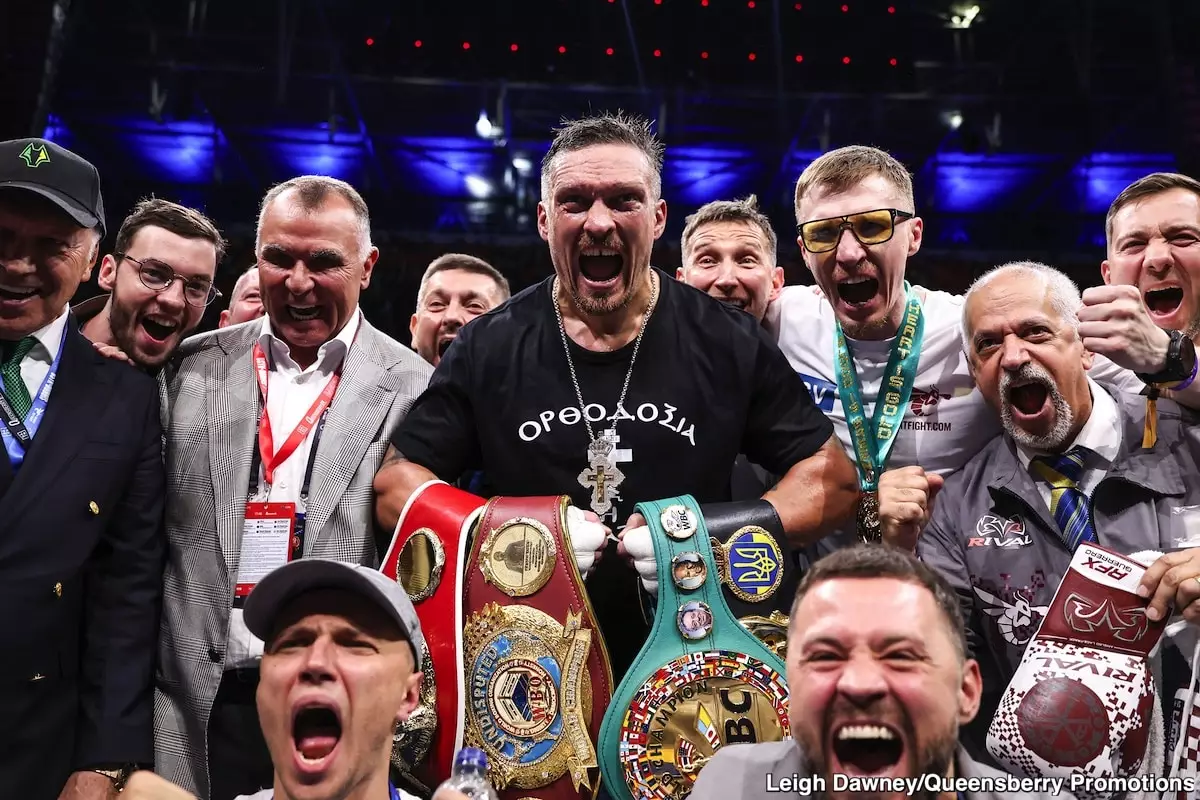Oleksandr Usyk’s career trajectory stands as a testament to relentless perseverance and strategic brilliance, elevating him beyond mere similarities with past legends. Unlike many champions who chase fleeting fame or superficial notoriety, Usyk has meticulously crafted a legacy rooted in substance rather than spectacle. His ascent from the cruiserweight division—where he cleaned out every notable champion without the advantage of protection or compromises—serves as a foundational pillar of his greatness. Traveling into hostile territories, he defeated champions in their own backyard—be it Latvia, Russia, Poland, or Germany—and did so with surgical precision and unshakable determination. This approach underscores a fighter who refuses to be confined by regional favoritism or protected records, instead opting to face adversity head-on.
Transitioning to heavyweight, many doubted his size and power, yet he defied expectations with an elegance that masked formidable substance. Beating Anthony Joshua twice, including a decisive rematch, cemented his position among the giants. Then, he shockingly took Tyson Fury’s undefeated record—a feat that was considered the gold standard for any heavyweight—highlighting his capacity to outthink and outfight the best. To top it off, his calculated decision to vacate a belt in pursuit of masterpiece victories—like reclaiming his undisputed status—demonstrates he prioritizes legacy over titles for their own sake. Usyk isn’t merely collecting belts; he’s sculpting a historic narrative that will resonate for generations.
Redefining the Modern Heavyweight Canon
Usyk’s genius lies not only in his accomplishments but in how he achieved them. His ability to unify titles across two divisions without the padding of easy defenses or built-in protection speaks volumes. While others might settle for lucrative but less meaningful bouts, he sought the most challenging fights, traveling to hostile environments and confronting the best opponents head-on. His footwork, boxing IQ, and ruthless precision make him an almost untouchable figure—an artist in the ring. The fights themselves are lessons in technique and mental fortitude, showcasing a fighter who can adapt swiftly and dominate with subtlety and power simultaneously.
In the current heavyweight landscape, the “list” of potential challengers appears quaint—larger, slower, more reliant on punching power than finesse. Whether it’s the lumbering Zhang, the stiff Hrgovic, or the straightforward Makhmudov, none match the multifaceted puzzle that Usyk presents. His footwork alone could turn these bouts into protracted ballet, with opponents fumbling and failing to land anything meaningful. Joseph Parker and Joe Joyce? The mismatch is glaring. Usyk’s movement, uncanny sense of timing, and tactical intelligence render these “big men” predictable and ultimately overwhelmed. The speculation about “challengers” is almost amusing—none possess the blueprint to defeat a fighter who doesn’t just avoid punches but makes his opponents miss at will.
The Question of Legacy and Future Moves
After accomplishing what few ever have—twice unifying the heavyweight crown, beating the top contenders, and doing so with minimal fuss—the lingering question isn’t about catching his breath but about why he continues to fight. The established narrative is that he’s already left an indelible mark; his resume reads like an anthology of the best fighters of his era, and his style reflects an athlete operating at peak resurgence. At 37, he’s physically primed, financially secure, and motivated by the pursuit of unblemished greatness.
The real intrigue now revolves around what’s next. The heavyweight division, bloated with big names and lucrative fights, seems to have already handed Usyk his rightful place at the summit. Future bouts—unless extraordinary—risk diluting his legacy or turning into unworthy purses that don’t match his profound achievement. Any potential rematch with Tyson Fury or a mega-bout in Saudi Arabia would be the perfect curtain call—a spectacle that honors his unparalleled skill and resilience.
Yet, the landscape might be slower to recognize his greatness unless he opts for a few more high-profile fights. Why continue to chase the routine defenses or entertain fights that seem more about maintaining status quo than elevating his legacy? If the next fight isn’t a historic payday or a legendary showdown, perhaps the wisest move is to walk away—leaving the sport on his own terms, having outclassed and outperformed virtually every contender. The question isn’t just about how long he can stay at the top but whether anyone is truly capable of challenging him once his footwork and ring intelligence remain unchallenged.
The Unbreakable Standard of Usyk’s Reign
To understand Usyk’s true significance, one must look at how he redefines what it means to be a champion in the modern era. In an age where fighters often rest on laurels, indulge in petty rivalries, or seek easy defenses, Usyk’s relentless pursuit of excellence sets a new bar. His Olympic gold, undisputed cruiserweight crown, and two-time undisputed heavyweight status form a tapestry of achievement woven together with discipline and skill. While others rely on raw power or promotional hype, Usyk relies on a pure, cerebral approach that makes him a nightmare for opponents and a savior for boxing purists.
He embodies the rare combination of technical mastery, mental toughness, and strategic patience. In this sense, his fights aren’t just bouts—they’re demonstrations of boxing guile at its finest. No fighter in the heavyweight division, perhaps in any division currently active, parallels his ability to adapt and excel under pressure. This isn’t bravado or showmanship; it’s a testament to a man who has consistently outthought and outperformed those in his path.
Knowing that no challenger has truly cracked the code, it becomes clear that Usyk’s reign might not need a flamboyant end. His name is etched into history, not just for the moments he’s fought but for the standards he’s set. Future generations will study his footwork, patience, and fight IQ—traits that separate the champions from the mere contenders. In the end, Oleksandr Usyk isn’t chasing greatness anymore; he’s become the blueprint for it.

